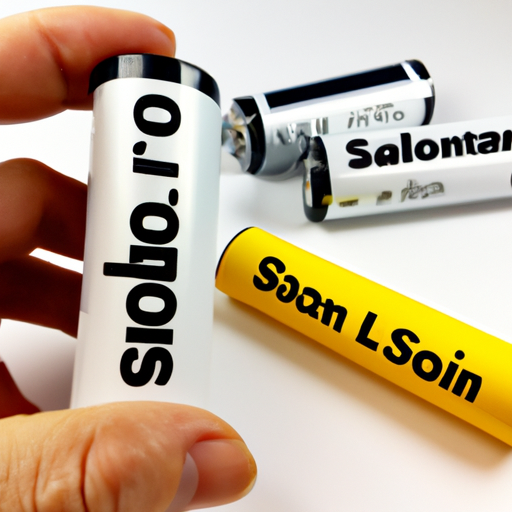Sodium-ion batteries are a type of rechargeable battery that uses sodium ions as the charge carriers. They are a promising alternative to lithium-ion batteries, which are currently the most commonly used type of rechargeable battery in electronic devices. Sodium-ion batteries have the potential to be cheaper and more environmentally friendly than lithium-ion batteries, making them an attractive option for a wide range of applications.

One of the key advantages of sodium-ion batteries is that sodium is much more abundant and cheaper than lithium. This means that sodium-ion batteries could potentially be produced at a lower cost than lithium-ion batteries, making them more accessible to a wider range of consumers. In addition, sodium-ion batteries are also more environmentally friendly, as they do not rely on rare earth metals like lithium-ion batteries do.
Another advantage of sodium-ion batteries is that they have a higher energy density than other types of rechargeable batteries, such as lead-acid batteries. This means that sodium-ion batteries can store more energy in a smaller space, making them ideal for use in portable electronic devices like smartphones and laptops.
Despite these advantages, sodium-ion batteries also have some limitations. One of the main challenges facing sodium-ion battery technology is the development of suitable electrode materials. While lithium-ion batteries typically use graphite as the anode material, sodium-ion batteries require a different material that can accommodate the larger size of sodium ions. Researchers are currently working on developing new electrode materials that can improve the performance and efficiency of sodium-ion batteries.
In addition, sodium-ion batteries also have a lower energy density than lithium-ion batteries, which means that they may not be suitable for all applications. For example, sodium-ion batteries may not be able to provide enough power for electric vehicles or grid-scale energy storage systems. However, sodium-ion batteries could still be a viable option for smaller electronic devices and stationary energy storage applications.
Overall, sodium-ion batteries have the potential to be a game-changer in the world of rechargeable batteries. With their lower cost, higher energy density, and environmental benefits, sodium-ion batteries could revolutionize the way we power our electronic devices and store energy. As researchers continue to make advancements in sodium-ion battery technology, we can expect to see more widespread adoption of this promising alternative to lithium-ion batteries in the near future.
Sodium-ion batteries are a type of rechargeable battery that uses sodium ions as the charge carriers. They are a promising alternative to lithium-ion batteries, which are currently the most commonly used type of rechargeable battery in electronic devices. Sodium-ion batteries have the potential to be cheaper and more environmentally friendly than lithium-ion batteries, making them an attractive option for a wide range of applications.

One of the key advantages of sodium-ion batteries is that sodium is much more abundant and cheaper than lithium. This means that sodium-ion batteries could potentially be produced at a lower cost than lithium-ion batteries, making them more accessible to a wider range of consumers. In addition, sodium-ion batteries are also more environmentally friendly, as they do not rely on rare earth metals like lithium-ion batteries do.
Another advantage of sodium-ion batteries is that they have a higher energy density than other types of rechargeable batteries, such as lead-acid batteries. This means that sodium-ion batteries can store more energy in a smaller space, making them ideal for use in portable electronic devices like smartphones and laptops.
Despite these advantages, sodium-ion batteries also have some limitations. One of the main challenges facing sodium-ion battery technology is the development of suitable electrode materials. While lithium-ion batteries typically use graphite as the anode material, sodium-ion batteries require a different material that can accommodate the larger size of sodium ions. Researchers are currently working on developing new electrode materials that can improve the performance and efficiency of sodium-ion batteries.
In addition, sodium-ion batteries also have a lower energy density than lithium-ion batteries, which means that they may not be suitable for all applications. For example, sodium-ion batteries may not be able to provide enough power for electric vehicles or grid-scale energy storage systems. However, sodium-ion batteries could still be a viable option for smaller electronic devices and stationary energy storage applications.
Overall, sodium-ion batteries have the potential to be a game-changer in the world of rechargeable batteries. With their lower cost, higher energy density, and environmental benefits, sodium-ion batteries could revolutionize the way we power our electronic devices and store energy. As researchers continue to make advancements in sodium-ion battery technology, we can expect to see more widespread adoption of this promising alternative to lithium-ion batteries in the near future.